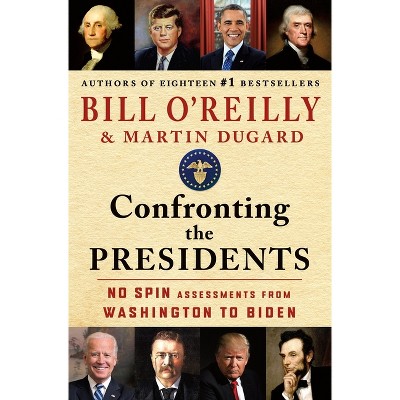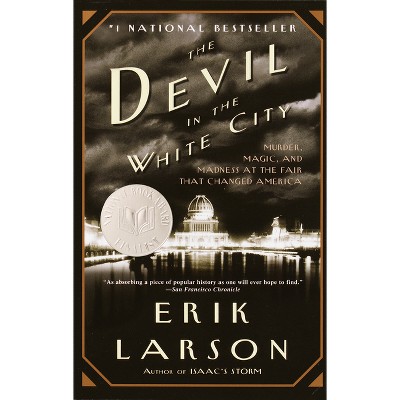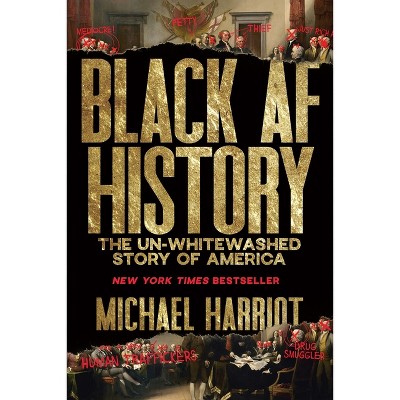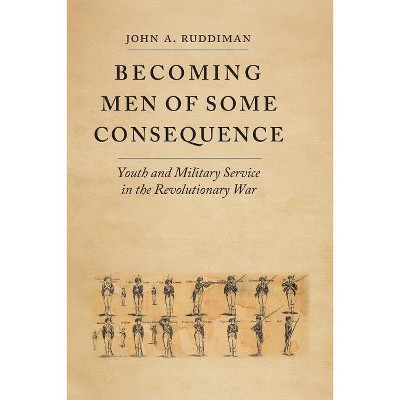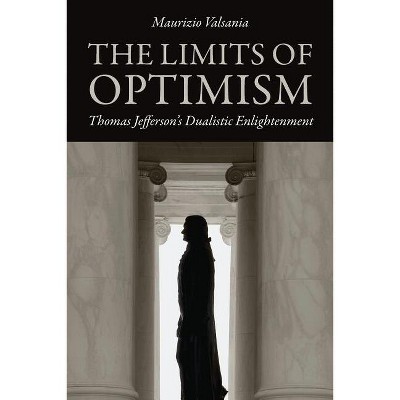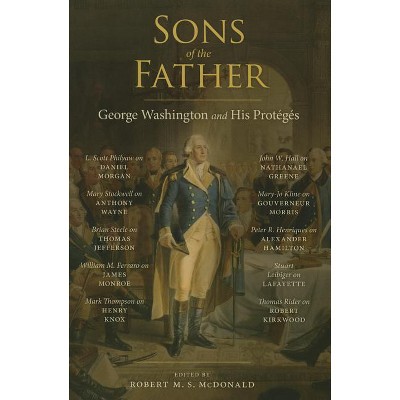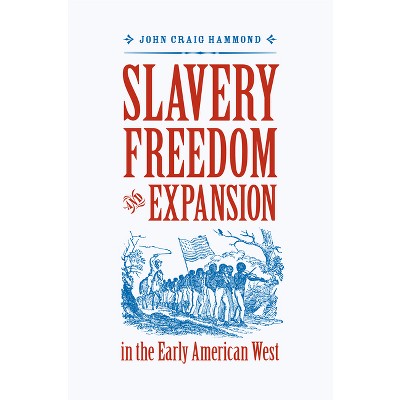Pulpit and Nation - (Jeffersonian America) by Spencer W McBride (Paperback)

About this item
Highlights
- In Pulpit and Nation, Spencer McBride highlights the importance of Protestant clergymen in early American political culture, elucidating the actual role of religion in the founding era.
- About the Author: Spencer W. McBride is a historian and documentary editor at the Joseph Smith Papers.
- 272 Pages
- History, United States
- Series Name: Jeffersonian America
Description
About the Book
Ultimately, Pulpit and Nation reveals that while religious expression was common in the political culture of the Revolutionary era, it was as much the calculated design of ambitious men seeking power as it was the natural outgrowth of a devoutly religious people.Book Synopsis
In Pulpit and Nation, Spencer McBride highlights the importance of Protestant clergymen in early American political culture, elucidating the actual role of religion in the founding era. Beginning with colonial precedents for clerical involvement in politics and concluding with false rumors of Thomas Jefferson's conversion to Christianity in 1817, this book reveals the ways in which the clergy's political activism--and early Americans' general use of religious language and symbols in their political discourse--expanded and evolved to become an integral piece in the invention of an American national identity. Offering a fresh examination of some of the key junctures in the development of the American political system--the Revolution, the ratification debates of 1787-88, and the formation of political parties in the 1790s--McBride shows how religious arguments, sentiments, and motivations were subtly interwoven with political ones in the creation of the early American republic. Ultimately, Pulpit and Nation reveals that while religious expression was common in the political culture of the Revolutionary era, it was as much the calculated design of ambitious men seeking power as it was the natural outgrowth of a devoutly religious people.
Review Quotes
In a strong addition to the field of early American political and religious history, Spencer W. McBride's Pulpit and Nation fulfills the author's claim that it "focuses on pivotal national events and developments between 1775 and 1800 in which religious language and symbolism helped shape public discourse" (p. 4). It is well researched, drawing on a variety of primary sources both published and archival, and offers a compact and well-organized presentation of several episodes that illustrate the interplay between religious and political agents and purposes in the period.
-- "Journal of Church and State"Pulpit and Nation examines the political use of religious language in the period between 1775 and 1800. In assessing clergyman's politicized religious speech, McBride maintains that clerics were essential intermediaries between elite politicians and the masses of common folk in the pews- Ministers, he claims, used their elevated pulpits to widely disseminate political ideas.... [The] book makes a compelling case that religious language was used to achieve political goals.
-- "Anglican & Episcopal History"Pulpit and Nation is indispensable reading for students of the complex and often ambiguous interplay between religion and politics during the conflict with Great Britain and its aftermath. [The book] reminds us, if we need reminding, that an ongoing, energetic debate on the prudential and constitutional place of religion in national politics is among the enduring legacies of the founding era.
-- "American Historical Review"Pulpit and Nation significantly advances discussion of the relationship between religion and politics in the American Revolutionary and early republican periods. The evidence McBride mounts in support of his thesis reflects extensive research. His argument is original and convincing.
--Amanda Porterfield, Florida State University, author of Conceived in Doubt: Religion and Politics in the New American NationPulpit and Nation's examination of the mutual and often manipulative exchanges between elite clergy and politicians in the founding era illuminates how deeply questions of church and state animated American political culture then--and bedevil us still.
--Sarah Barringer Gordon, University of Pennsylvania, author of The Spirit of the Law: Religious Voices and the Constitution in Modern America[E]minently sensible. [McBride] is attuned to the mixed and multiple motives behind mostpolitical uses of religious appeals.... [A] trustworthy guide and a welcome contribution.
-- "Journal of Church and State"[T]his work is an indispensable addition to the study of religion in the Revolutionary and early national periods.... Essential.
-- "CHOICE"Heated debates concerning the role of religion in politics, and the presence--or absence of--the Christian beliefs of America's founders are not merely recent developments but have been a part of the discussion from the colonial to the present time. The issues emerging from such deliberations are not as cut-and-dried as one would hope, and these issues are astutely examined by Spencer McBride in Pulpit and Nation: Clergymen and the Politics of Revolutionary America.
-- "Reading Religion"About the Author
Spencer W. McBride is a historian and documentary editor at the Joseph Smith Papers.
Shipping details
Return details
Trending History
